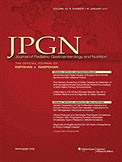Hainerová IA, Lebl J. J Pediatr Gastroenterol Nutr. 2010 Dec;51 Suppl 3:S123–4. IF: 2.183

Abstract:
Appetite regulation and adequate eating behavior are crucial for survival. To begin and to stop eating is a complex process. Appetite regulation, perception of hunger and satiety, eating behavior, and food preferences are in great part determined by genetic factors. Therefore, if tasty and energy-rich food is freely available in potentially unlimited quantities, overeating may occur due to insufficient defense mechanisms. The regulation of energy balance and appetite regulation is orchestrated by an interaction of peripheral signals (hormones, nutrients, neuronal signals) with the central nervous system (CNS), in which the hypothalamus plays a pivotal role. Mutations of genes involved in energy balance regulation as the leptin-melanocortin pathway lead to a loss of control over appetite and early-onset severe obesity.
-mk-